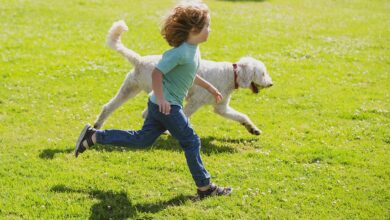Frequently Asked Questions About Puppy Care
Frequently Asked Questions About Puppy Care
Caring for a puppy is one of the most important stages of dog ownership. Ensuring their healthy growth, proper training, and a happy life requires attention to various factors. Here are answers to some of the most frequently asked questions about puppies:
How Should Puppies Be Fed?
Puppy nutrition depends on their age, breed, and health condition. General feeding guidelines include:
- First 6-8 weeks: Mother’s milk is essential for puppies’ immunity. For those who cannot nurse, special milk replacers are recommended.
- 2-4 months: Transition to solid food begins. Use high-protein and energy-rich food specifically designed for puppies.
- Number of meals: Up to 2 months, feed 4-5 small meals per day; after 4 months, reduce to 3 meals daily.
When using homemade food:
- Avoid harmful foods like onions, garlic, chocolate, and grapes.
- Consult a vet to ensure a balanced diet.
How to Play with Puppies?
Playtime is crucial for a puppy’s physical and mental development. Here’s how to make playtime enjoyable and safe:
- Simple and safe toys: Soft balls, chew ropes, and teething toys are ideal.
- Short play sessions: Puppies have limited energy, so keep playtimes to 10-15 minutes.
- Positive reinforcement: Reward your puppy with treats during play to encourage good behavior.
The Teething Process in Puppies
Puppies typically start teething at 3-4 weeks, with milk teeth being replaced by permanent ones around 3-4 months. During this phase:
- Chewing increases: Provide chew toys to soothe their gums.
- Mouth sensitivity: Puppies may experience gum irritation or light bleeding.
- Diet adjustments: Opt for softer foods during this period to ease discomfort.
Potty Training for Puppies
Potty training can be a challenging but rewarding process. For effective training:
- Establish a routine: Take your puppy to their designated potty area after eating, drinking, or waking up.
- Use a specific area: Choose a consistent spot indoors or outdoors for potty breaks.
- Positive reinforcement: Reward your puppy when they use the correct spot.
- Be patient: Accidents are common during the early weeks; avoid punishment and stay consistent.
How to Care for Newborn Puppies?
Newborn puppies require special attention to thrive:
- Temperature regulation: Keep them in a warm environment, using heating pads or warm water bottles if needed.
- Feeding: If mother’s milk isn’t available, use vet-recommended milk replacers.
- Hygiene: Regularly clean their bedding and remove any waste.
- Veterinary care: Schedule health checks and begin vaccination on time.




